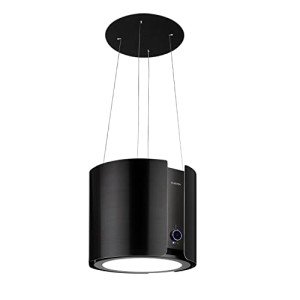The Reasons To Work With This Kitchen Island Extractor
페이지 정보
작성자 Leila 댓글 0건 조회 5회 작성일 25-05-20 02:18본문
The Essential Guide to Kitchen Island Extractors: A Comprehensive Overview
In modern kitchen design, the kitchen island has actually emerged as a main function, serving both visual and functional functions. To boost the cooking experience, lots of property owners are going with kitchen island extractor fans extractors, which not only eliminate cooking odors however also contribute to the kitchen's total style. This post will explore different elements of kitchen island kitchen extractor hoods extractors, including their benefits, types, setup considerations, and maintenance. Additionally, typical FAQs will also be addressed to provide a clearer understanding of this ingenious kitchen function.
Understanding Kitchen Island Extractors
Kitchen island cooker hoods uk extractors are ventilation systems mounted above kitchen islands that assist in getting rid of smoke, steam, and smells produced throughout cooking. Unlike conventional hoods that are installed versus walls, island extractors hang from the ceiling, making them ideal for open-plan designs that feature a central kitchen island hood extractor.

Benefits of Kitchen Island Extractors
Improved Air Quality: Best matched for busy kitchen cooker island (just click fewpal.com) areas, island extractors significantly improve the air quality by removing airborne impurities.
Boosted Aesthetics: Available in various designs and surfaces, these extractors can match a kitchen's decoration, including a touch of sophistication.
Space Optimization: They free up counter area, as they don't need wall installing, permitting more versatility in kitchen style.
Personalized: Many designs offer adjustable fan speeds, lighting functions, and an option of ducted or recirculating choices to suit private needs.
Types of Kitchen Island Extractors
1. Ducted Extractors
Ducted kitchen island extractors are connected to a duct system that vents air outside. They are often chosen for their effectiveness in removing smoke and odors.
Pros:
- Better air quality
- More reliable at smell removal
- Quiet operation
Cons:
- More complicated setup
- Needs structural modifications
2. Recirculating Extractors
Recirculating extractors filter air through charcoal or grease filters and return the purified air back into the kitchen. These are ideal for areas where ductwork isn't feasible.
Pros:
- Easier installation
- Less invasive
Cons:
- Less efficient at smell elimination
- Regular filter replacements required
3. Downdraft Extractors
Downdraft extractors are integrated into the countertop and rise during usage. Although they are not as popular as traditional hoods, they are a fantastic option for minimalistic designs.
Pros:
- Space-saving style
- Suitable for particular designs
Cons:
- Less effective compared to conventional extractors
- Greater setup expenses
| Type | Pros | Cons |
|---|---|---|
| Ducted | Outstanding air quality, quiet | Complex setup |
| Recirculating | Easy setup, less invasive | Regular filter changes required |
| Downdraft | Space-saving, streamlined design | Greater costs, less efficient |
Setup Considerations
Setting up a kitchen island extractor requires mindful planning. Here are some vital factors to remember:
Height: The optimum height for installing an extractor is 30-36 inches above the cooking surface area. For gas stoves, the height ought to be closer to 36 inches.
Size: Ensure the extractor is 6-12 inches wider than the cooktop on all sides for optimum efficiency.
Ducting: If opting for a ducted extractor, prepare for duct positioning. This may need ceiling changes or extra building work.
Electrical Supply: Ensure compliance with regional codes and guidelines when setting up electrical elements for lighting and kitchen Cooker island motor functions.
Style Compatibility: Consider the kitchen's general design style and select an extractor that balances with existing elements.
Upkeep and Care
To make sure optimum efficiency, regular maintenance of kitchen island extractors is essential. Here are some tips:
Clean Filters Regularly: Depending on the kind of extractor, filter cleansing or replacement should be done every 1-3 months.
Inspect the Motor: Regularly check the motor and fan for debris build-up and ensure they are working correctly.
Lubricate Moving Parts: Lubrication will extend the life of your extractor and lower sound levels.
Look For Duct Blockages: If you have a ducted system, periodically inspect for any clogs or damage to the ductwork.
Frequently Asked Questions About Kitchen Island Extractors
1. How do I pick the ideal size extractor for my kitchen?
Picking the ideal size extractor includes determining the width of your cooktop and guaranteeing the extractor is 6-12 inches broader on either side.
2. Are kitchen island extractors noisy?
Most modern kitchen island extractors are created for peaceful operation, specifically at lower fan speeds. However, noise levels can differ based on design and settings.
3. What is the typical cost of a kitchen island extractor?
Rates can range hoods for islands from ₤ 200 to over ₤ 2,000, kitchen cooker island depending upon the brand, type, and functions. Installation expenses will vary based upon regional labor rates and the complexity of the installation.
4. Can I install an extractor myself?
While some property owners select DIY installation, it is suggested to employ an expert, especially for ducted systems, to guarantee safety and compliance with regional codes.
5. How typically should I have my kitchen island extractor serviced?
An annual service by an expert is suggested for ducted systems to look for clogs, while recirculating systems should have filters changed every couple of months.
In conclusion, kitchen island extractors are both practical and elegant services for contemporary cooking areas. With different types, setup factors to consider, and upkeep needs, it's important for property owners to educate themselves about the different choices readily available. By choosing the best extractor, they can create an enjoyable cooking environment and enhance the kitchen's performance and appearance.

댓글목록
등록된 댓글이 없습니다.